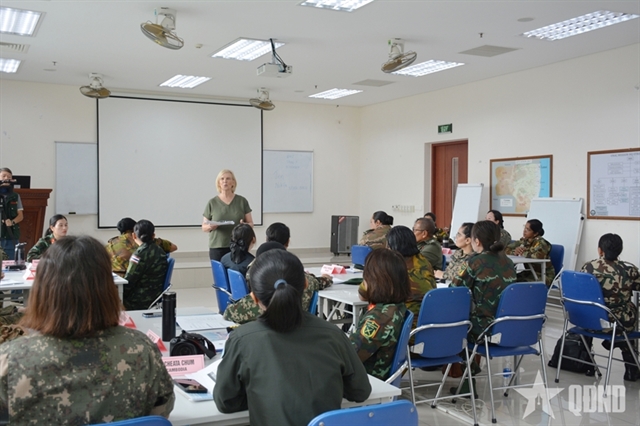Cooperation between Faith-Based Organizations and UNFPA Critical to Maternal Health, Say Groups
Representatives of more than 40 international faith-based organizations emphasized this partnership potential at the conclusion of two days of a policy round table on a range of issues including humanitarian relief, migration, maternal health and women's empowerment. The 3-4 August meeting was hosted by UNFPA, the United Nations Population Fund.
The international faith-based organizations at the two-day meeting included World Vision, Islamic Relief, Adventist Development and Relief Agency, YWCA, the Salvation Army, Art of Living Foundation, Parliament of the World’s Religions and Religions for Peace.
The partnership between faith-based organizations and UNFPA on common goals will “help unleash the tremendous potential for action that remains untapped within the faith-based community”, said William Vendley, Secretary-General of Religions for Peace. Their diversity of faiths, networks, capacities and knowledge, he added, will multiply the power of outreach to increase support for work to reduce maternal death and end violence against women.
To facilitate successful partnership with UNFPA, the representatives said faith-based organizations should not only share training and knowledge, but also engage in strategizing on issues such as maternal health and violence against women. They called for user-friendly, evidence-based information which could relate to the language that faith-based communities could use for advocacy.
The Vice Chair of the Parliament of the World’s Religions, Audrey Kitagawa, expressed participants' appreciation of UNFPA’s work with faith-based communities, adding it had, "become a model for engagement that is at once sensitive, dignified and coherent, that recognizes culture as not only a viable entry point, but the framework for the development of gender equality and human rights."
Opening the meeting on Monday, UNFPA’s Executive Director, Thoraya Ahmed Obaid, said that engaging with faith-based organizations in development work was a priority for UNFPA because of the “profound moral authority that religious leaders have, and we were all aware of the fact that religious organizations are the oldest social service providers humankind has known.”
“To become strategic and sustainable, we needed to engage these critical service providers, given the critical personal and community-based connection between the people and the faith-based organization centres providing services,” Ms. Obaid added.







